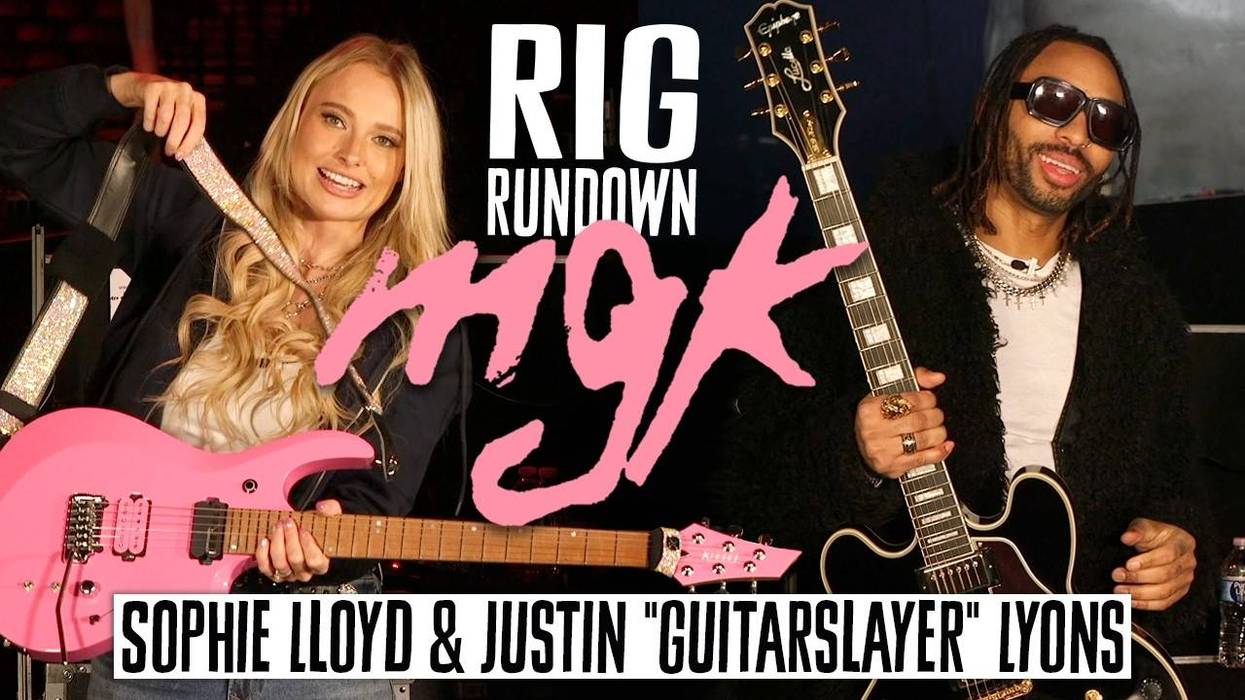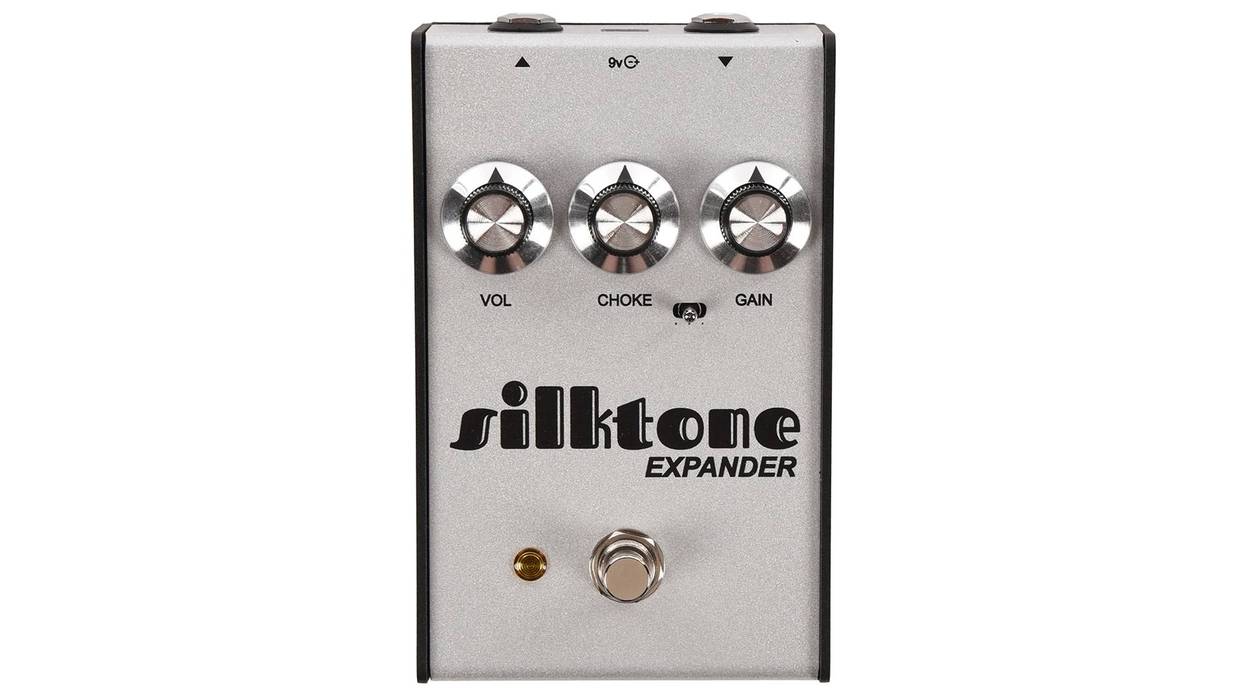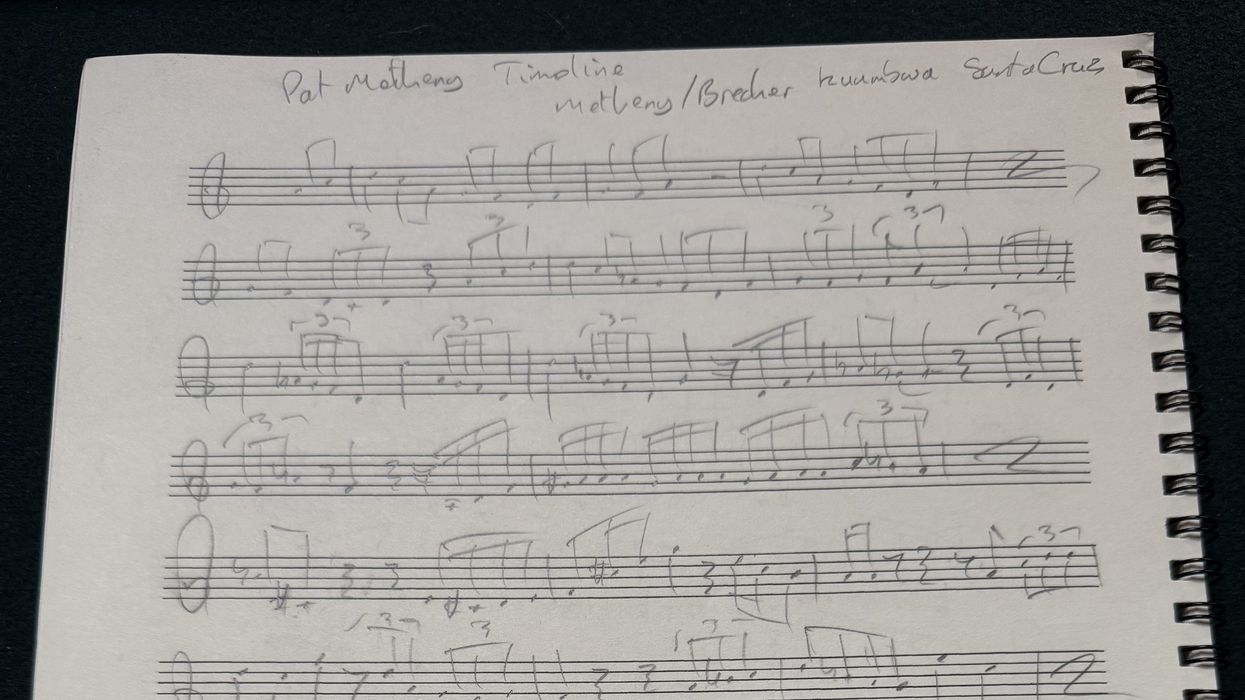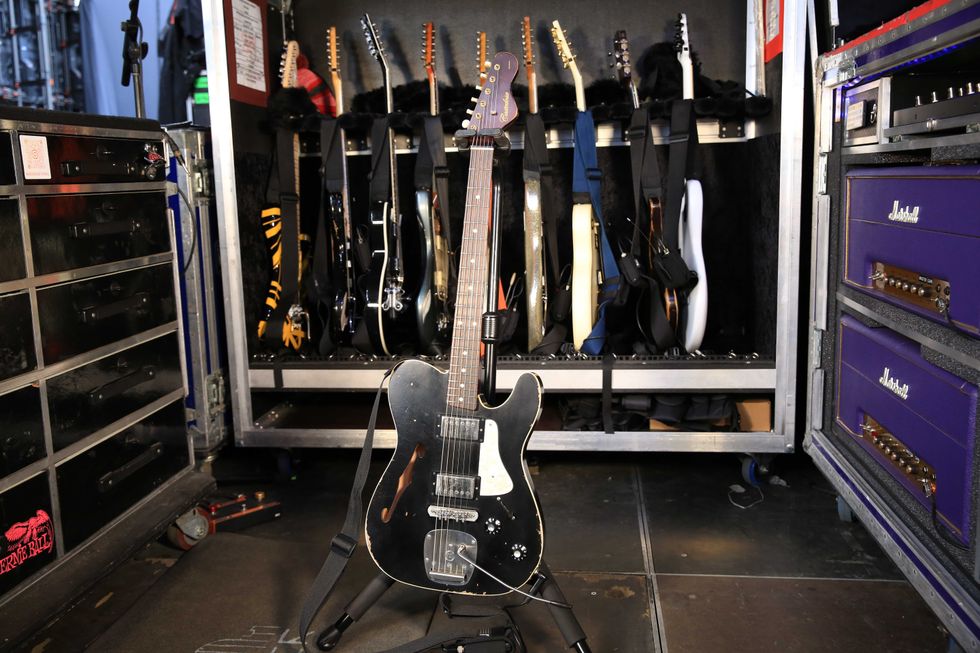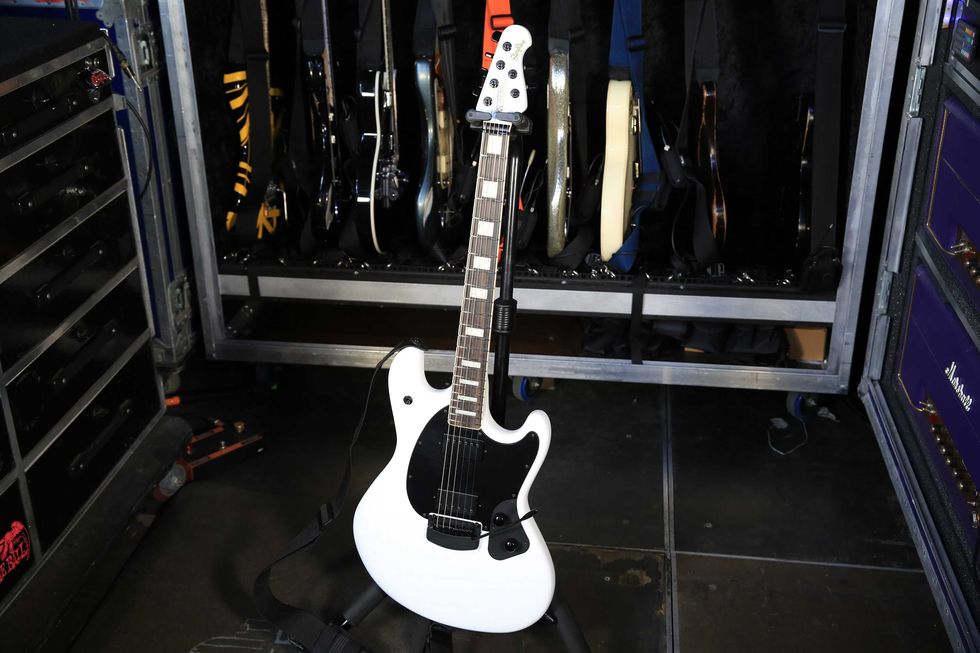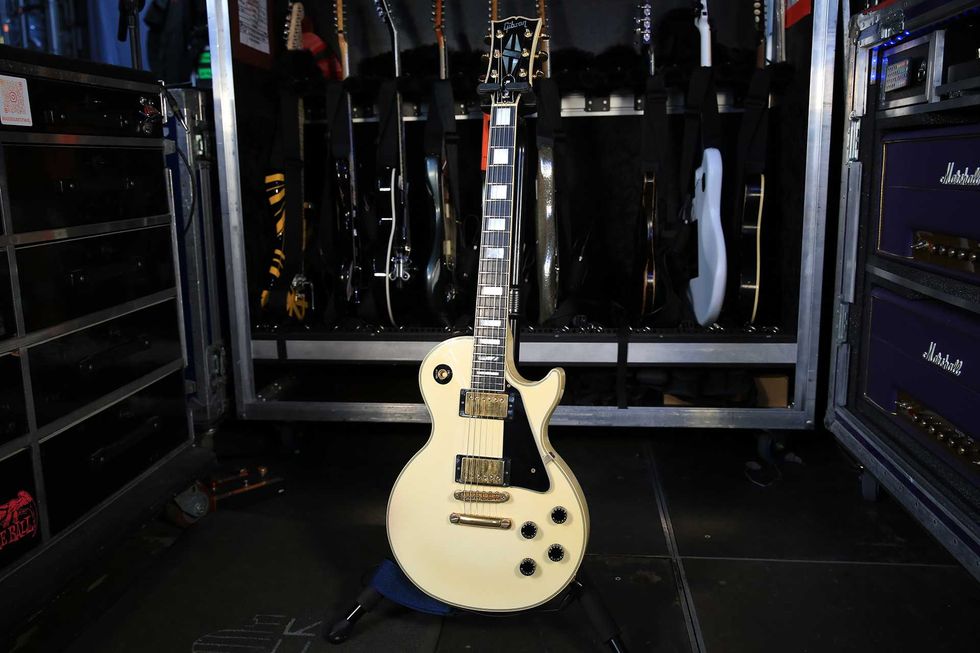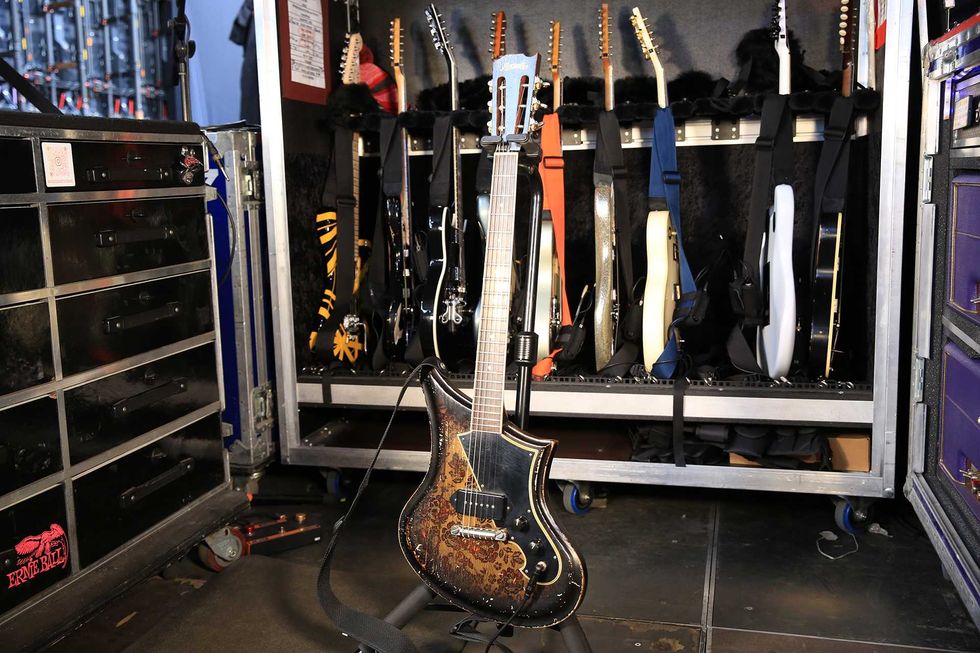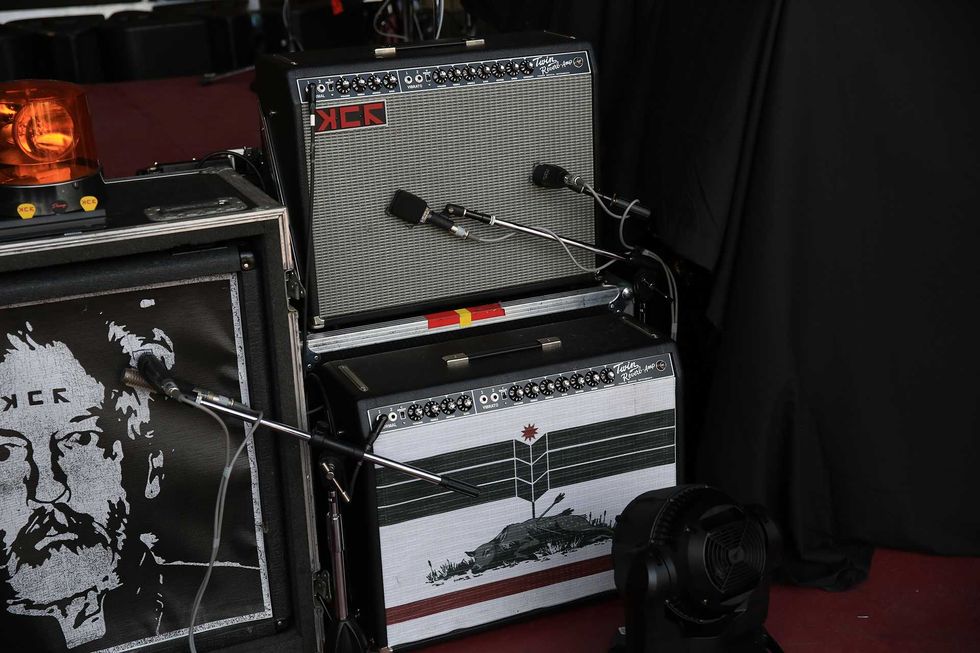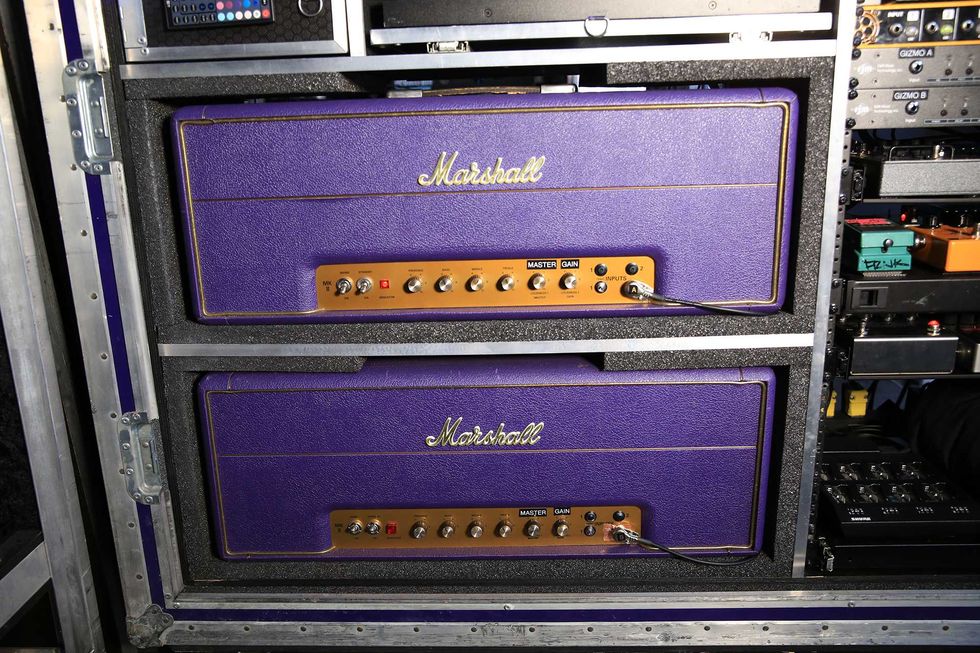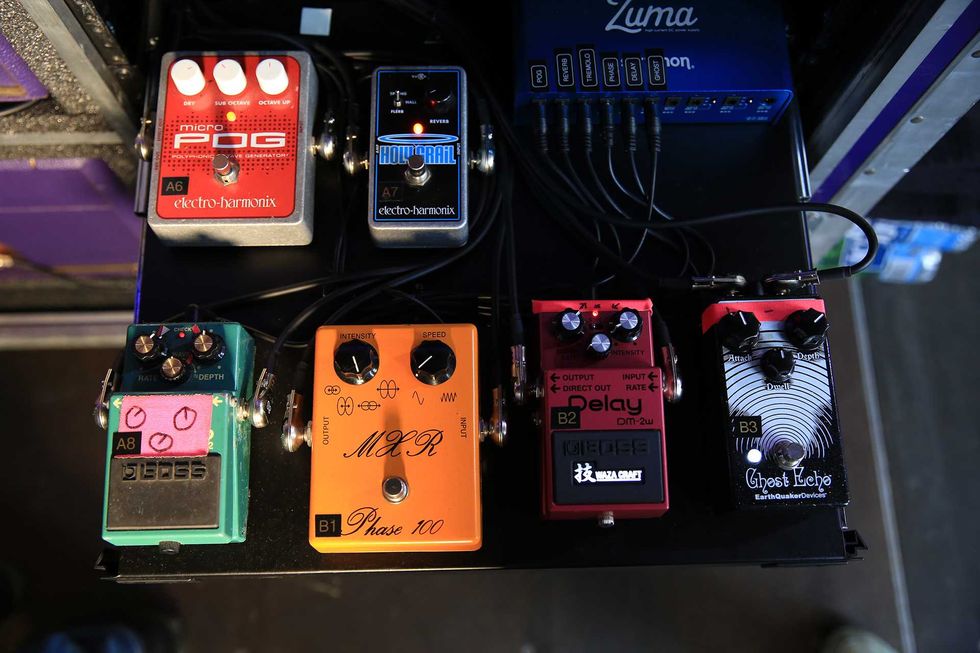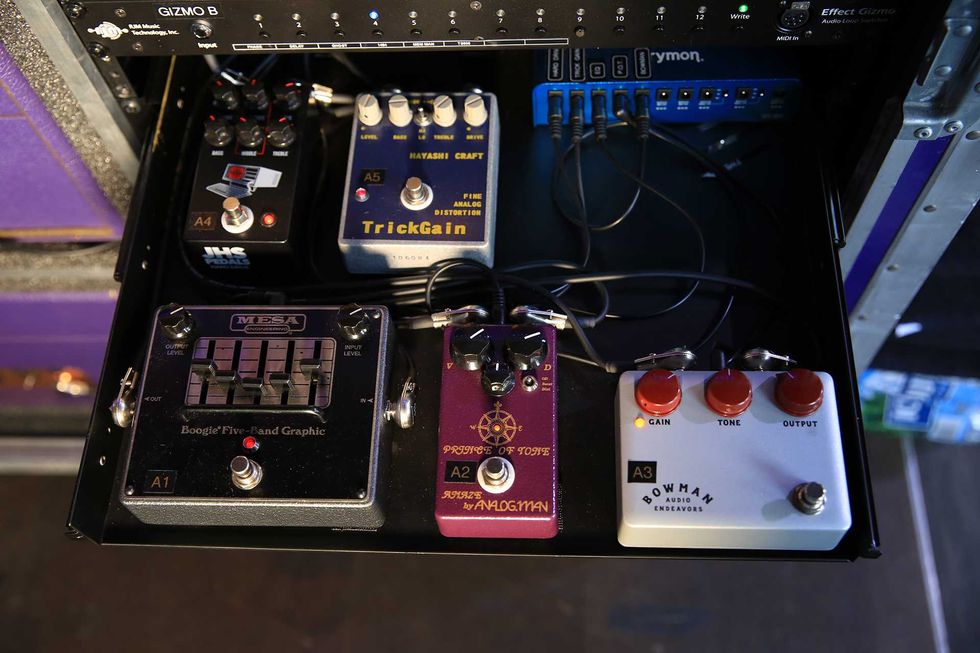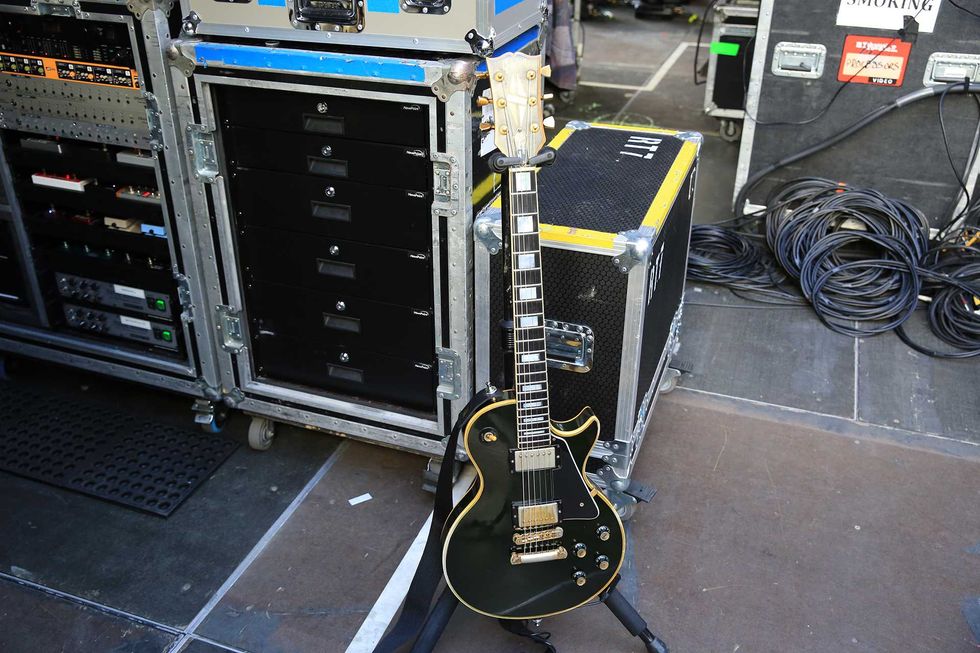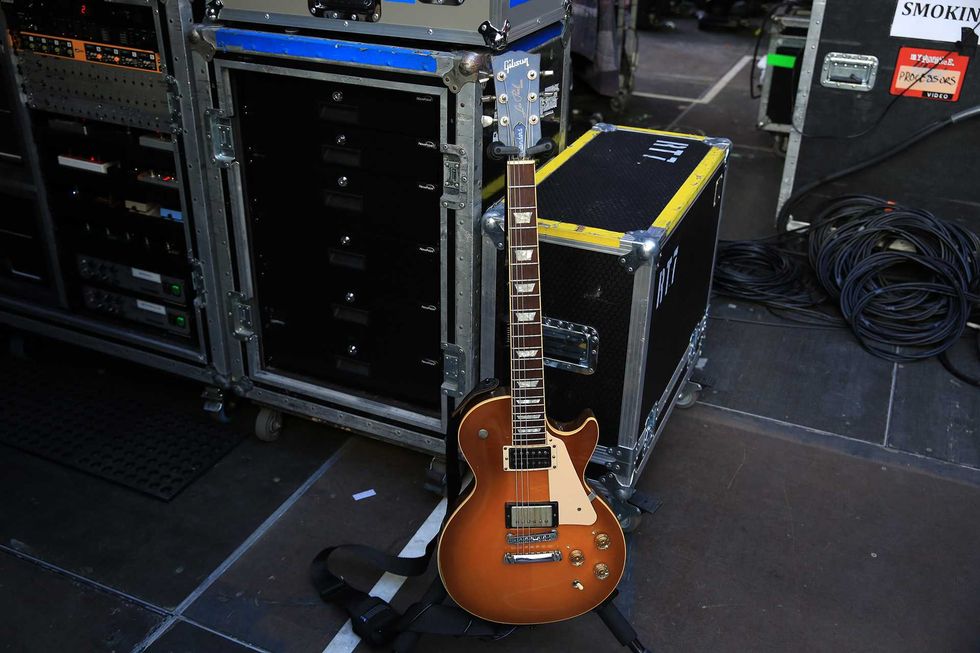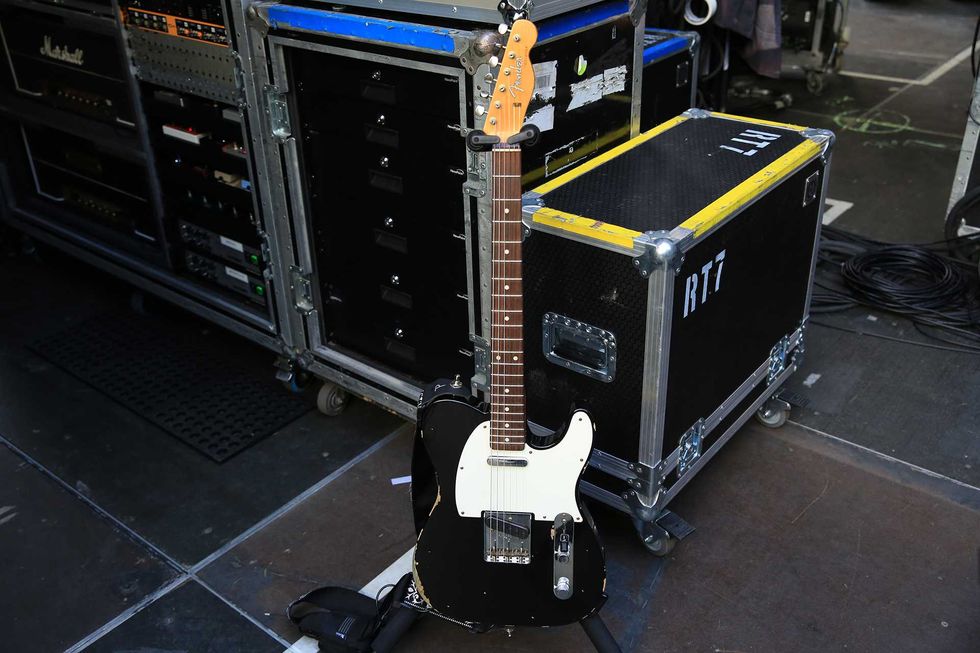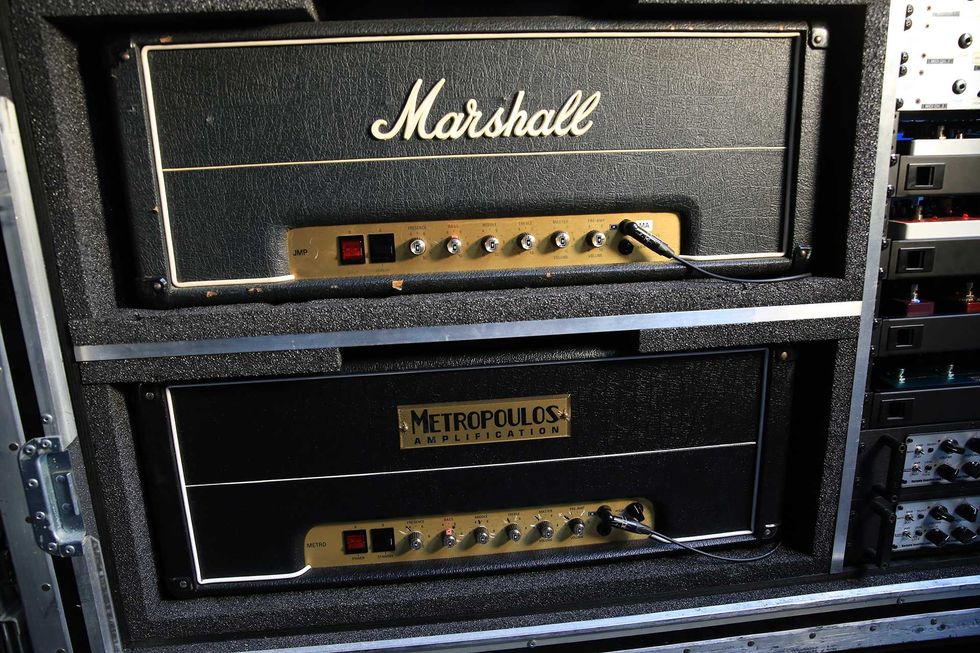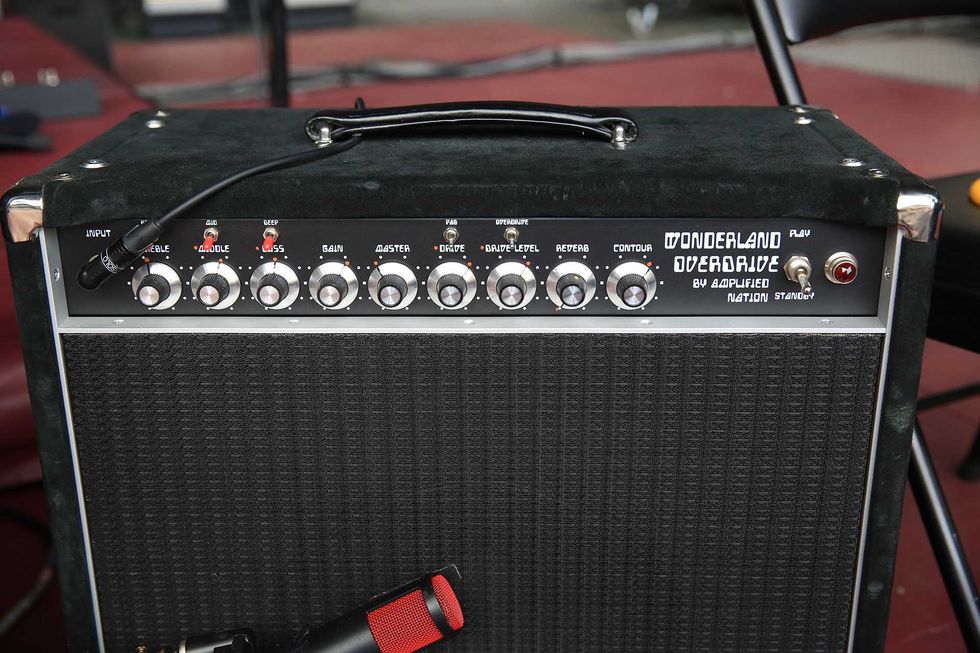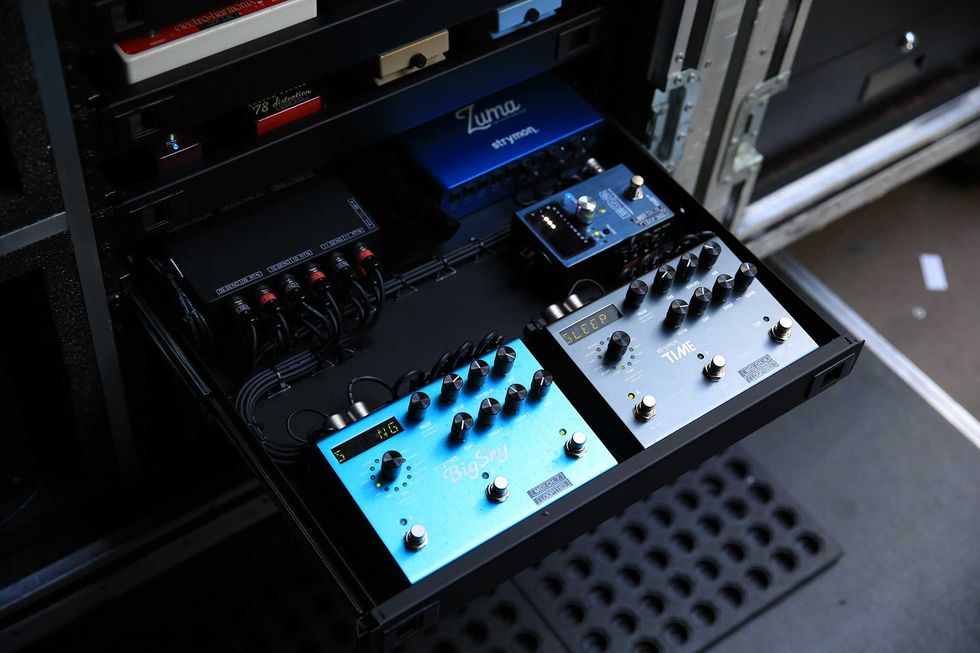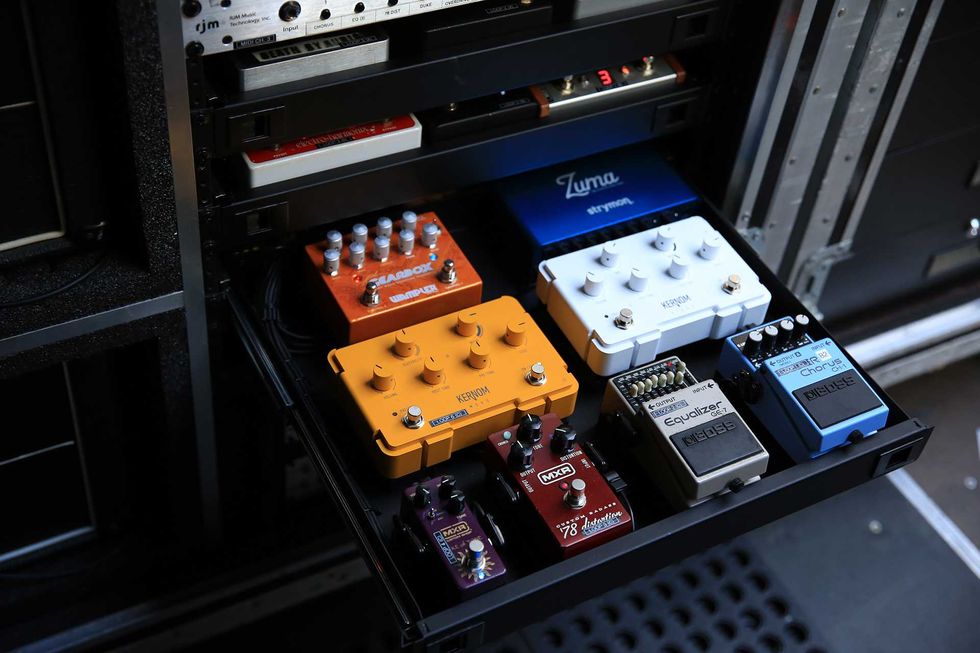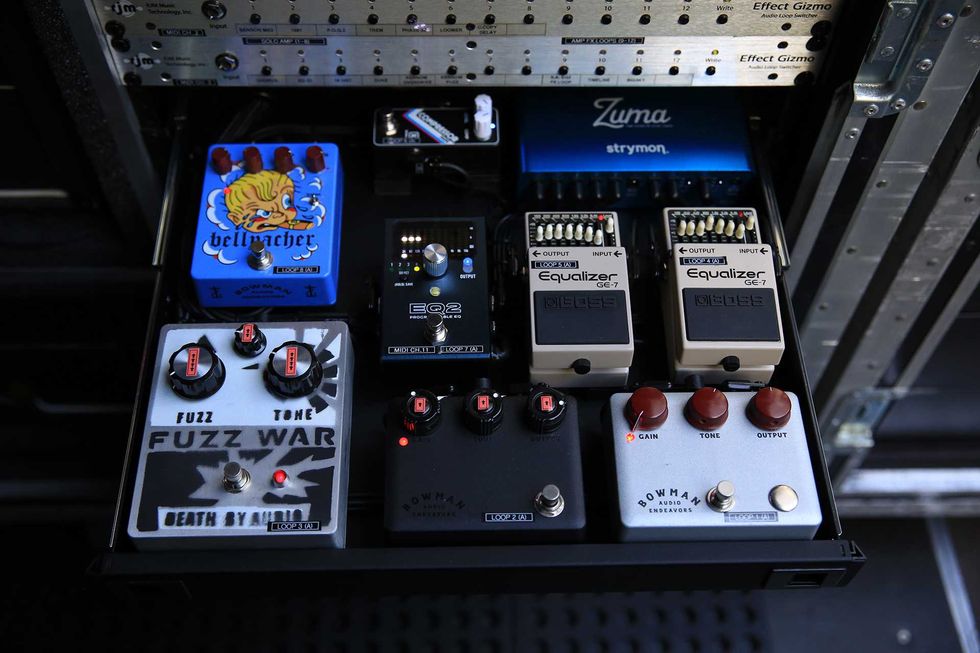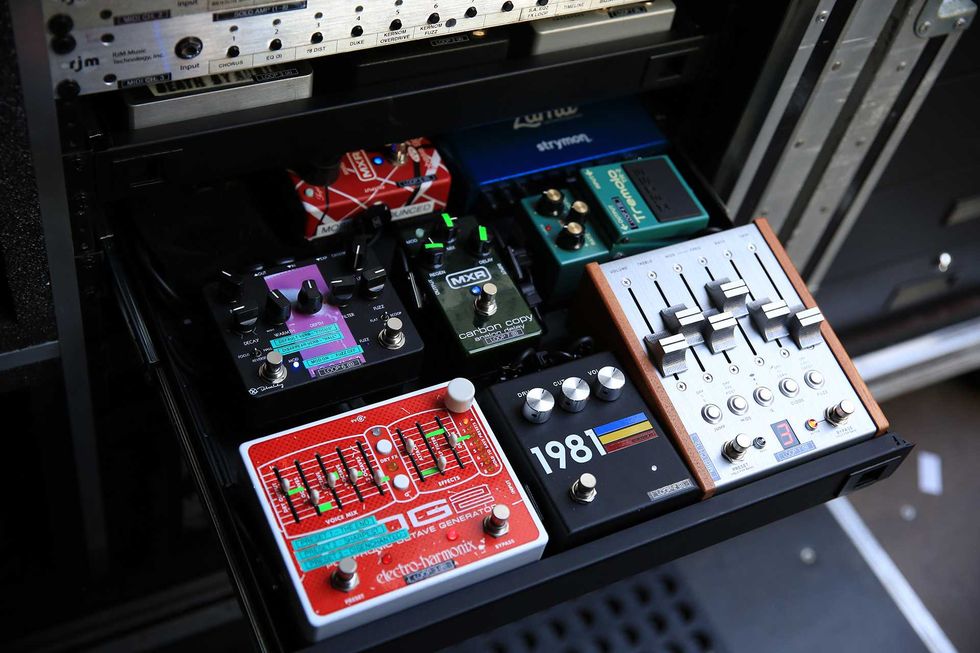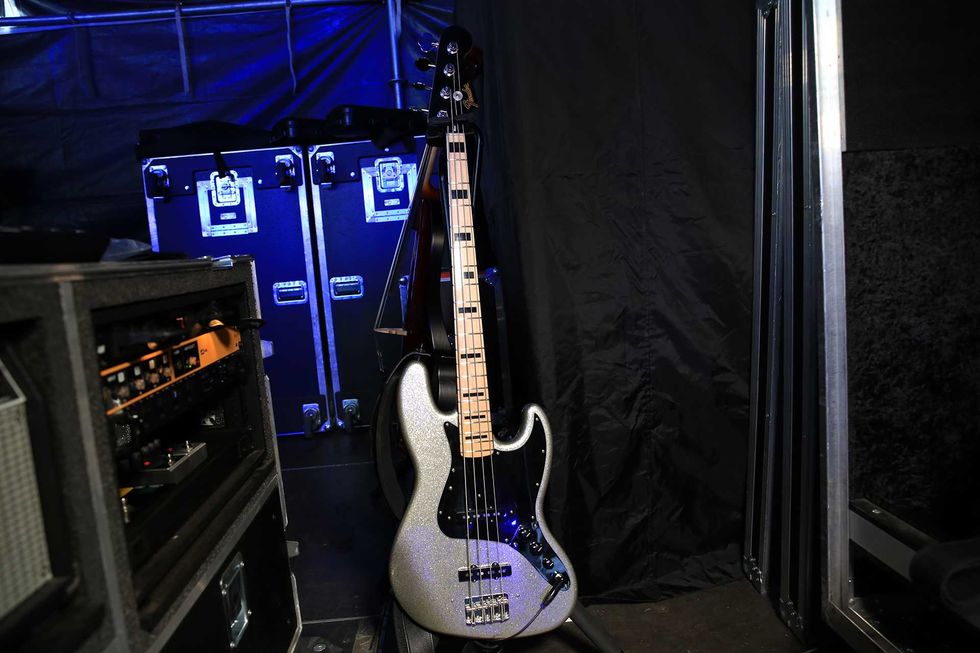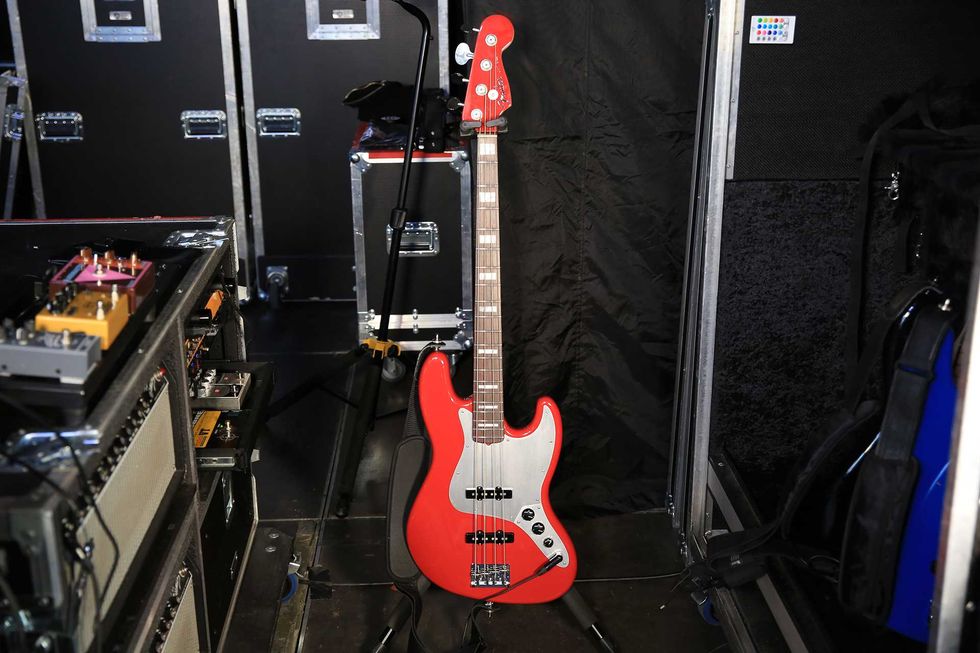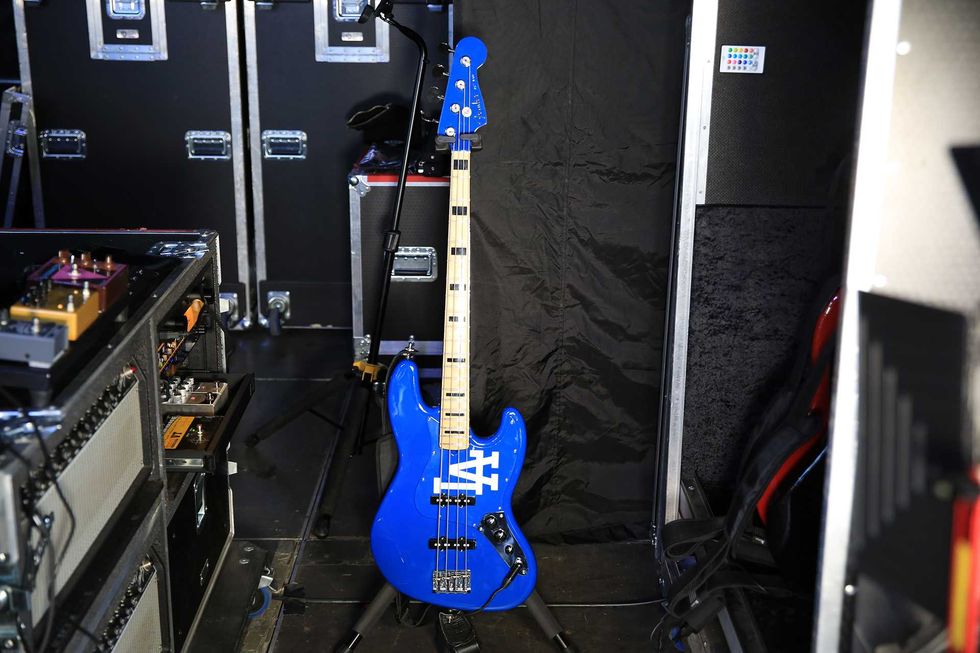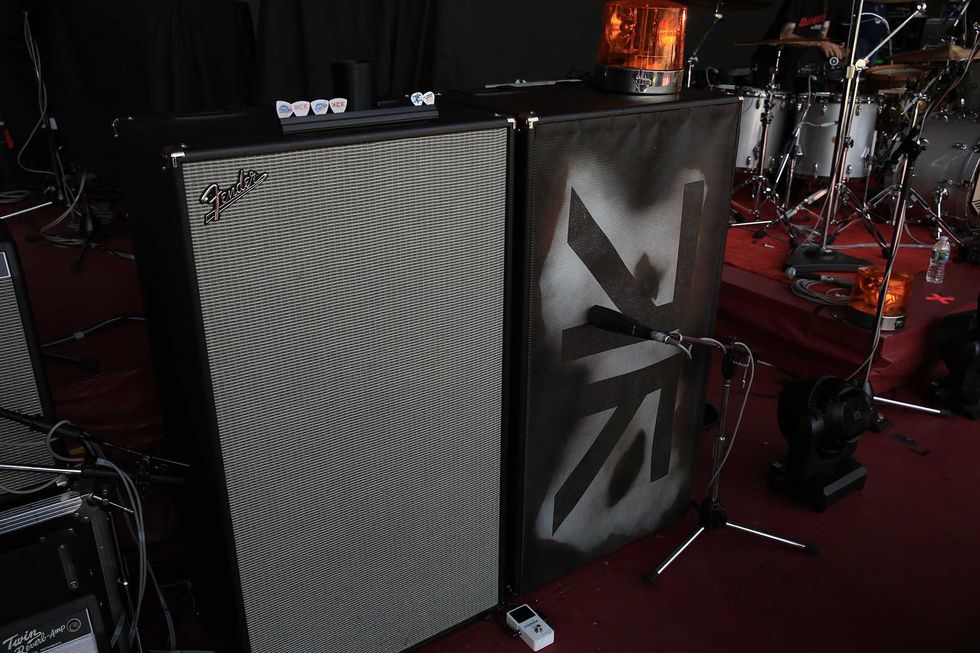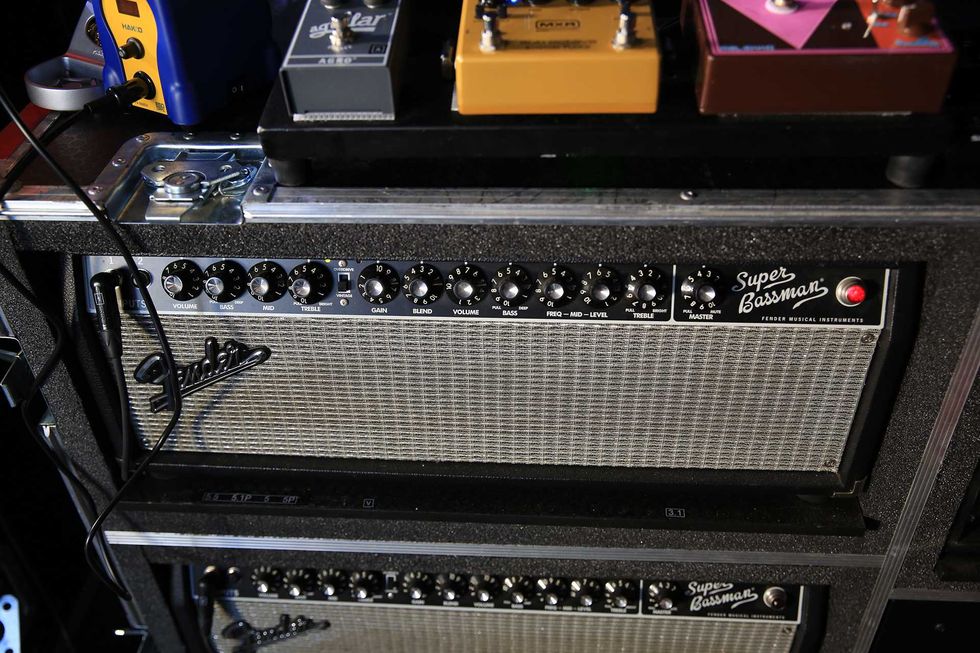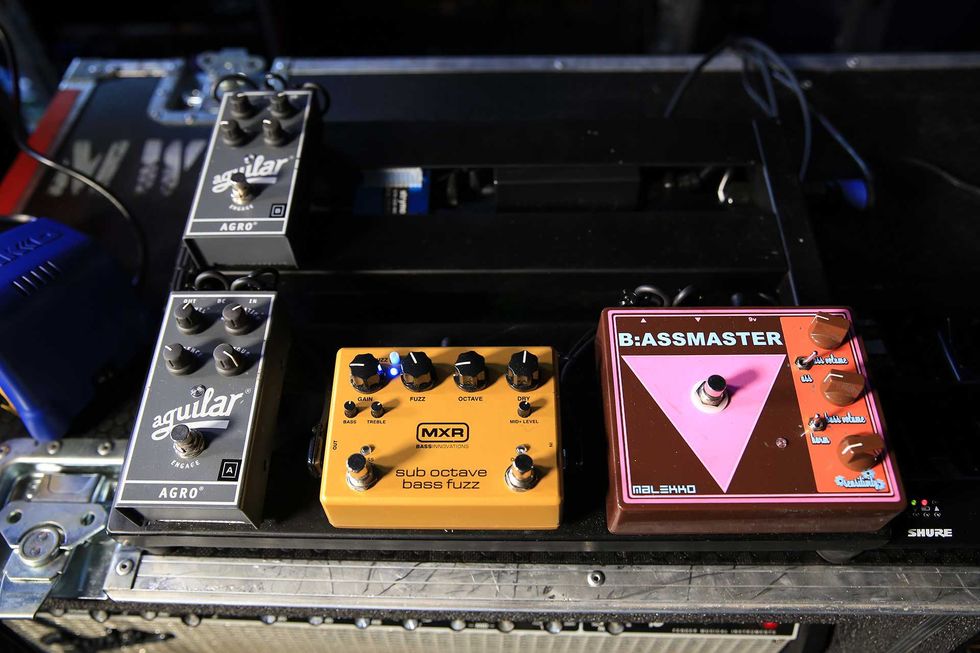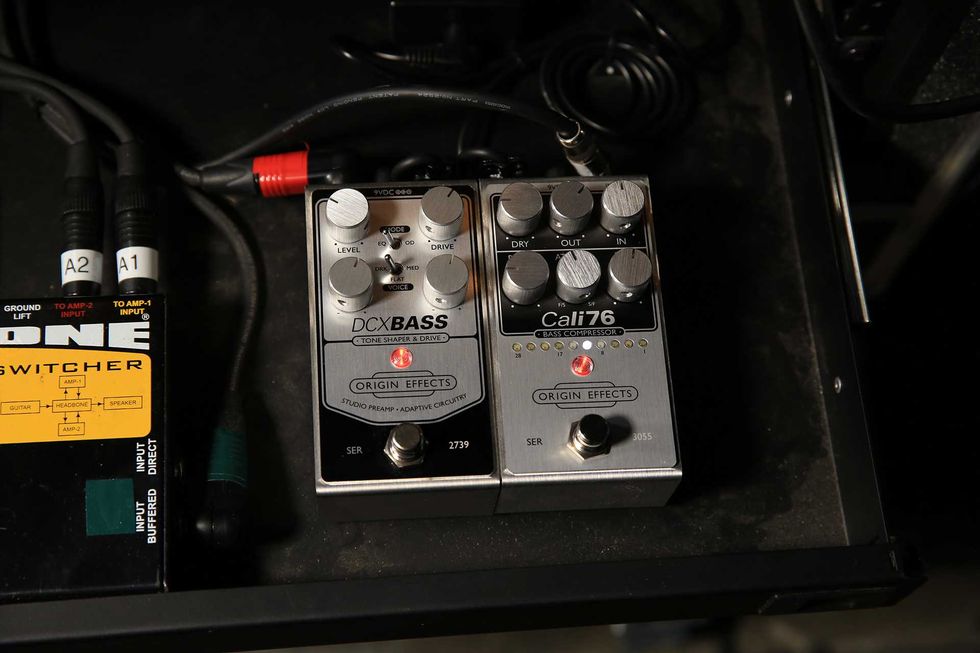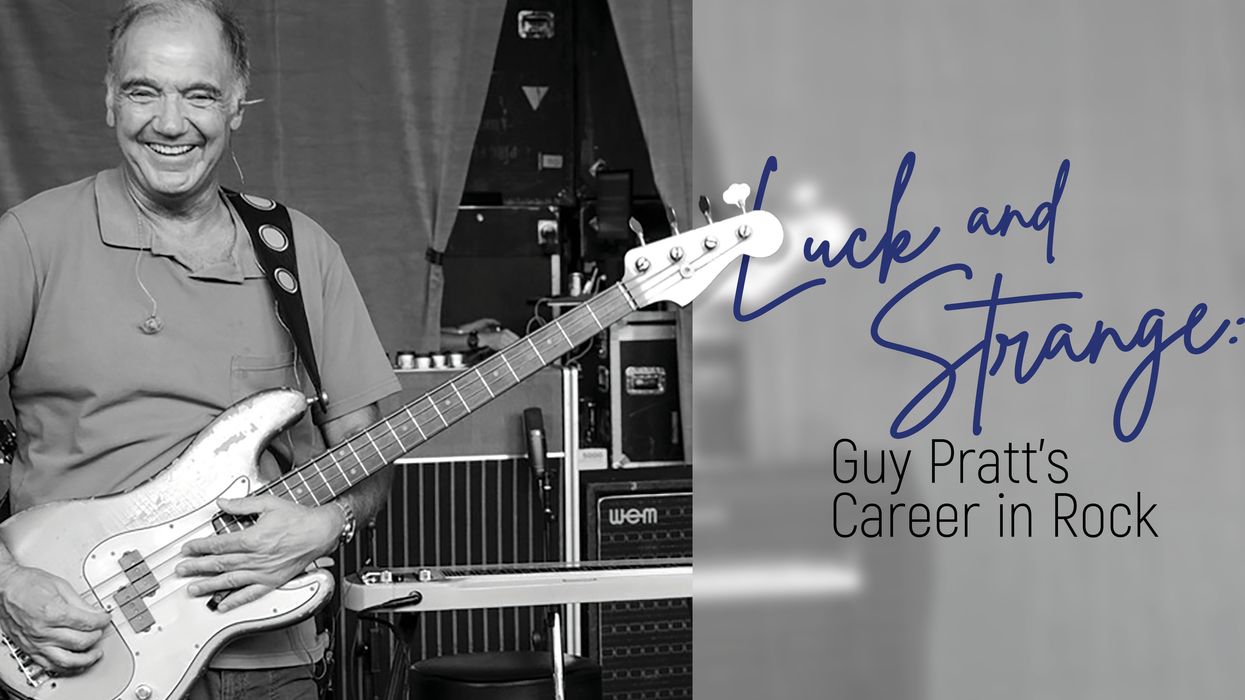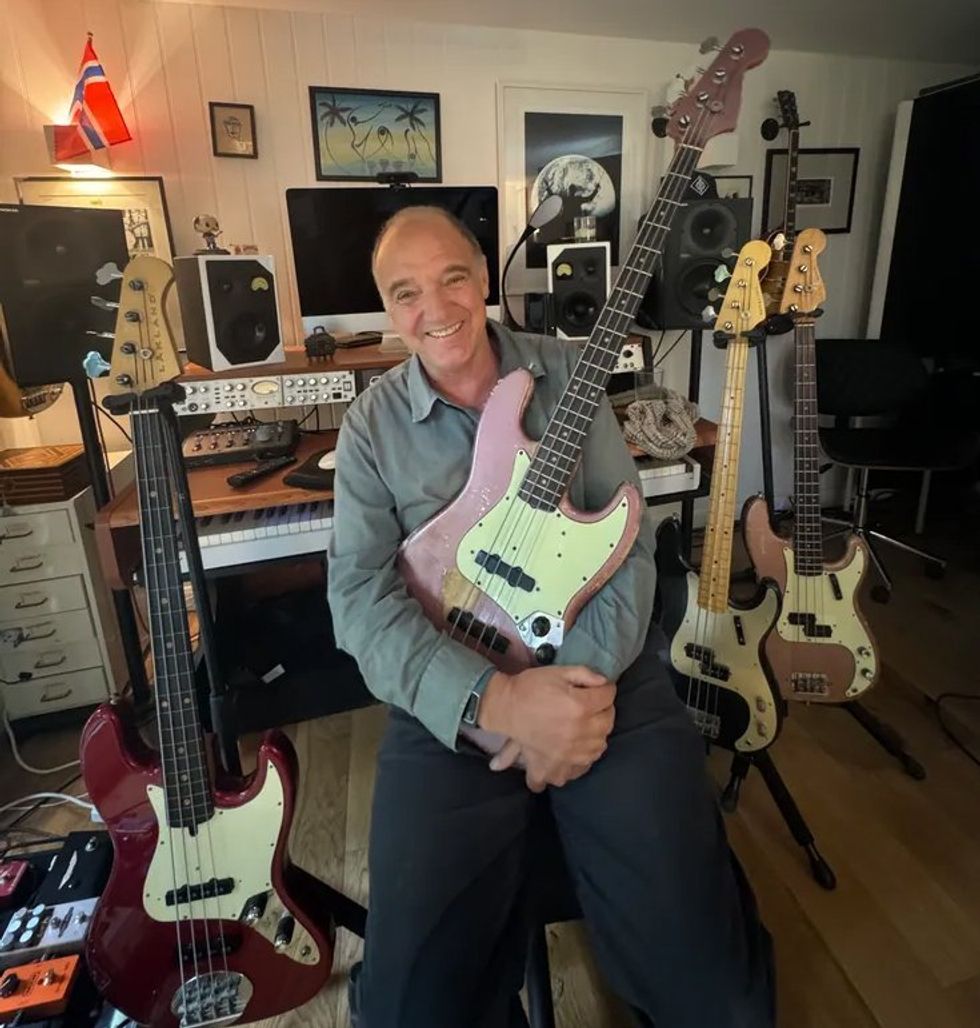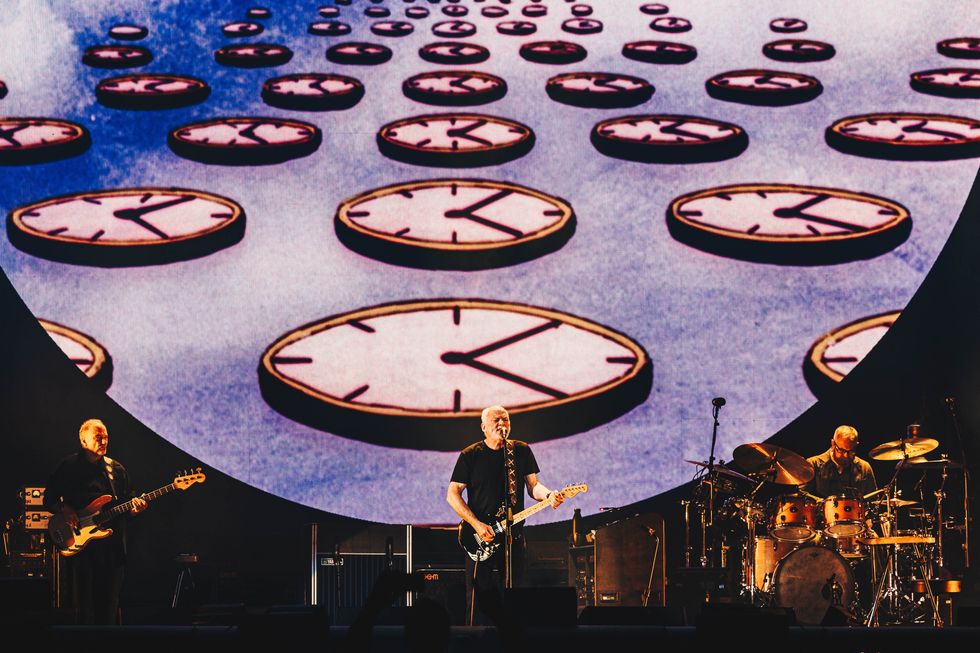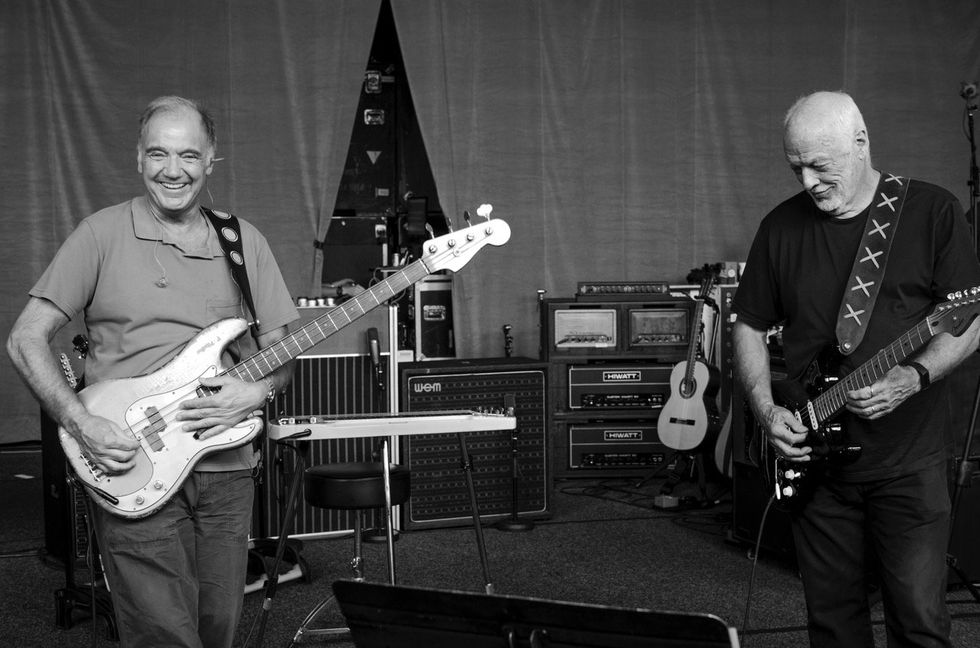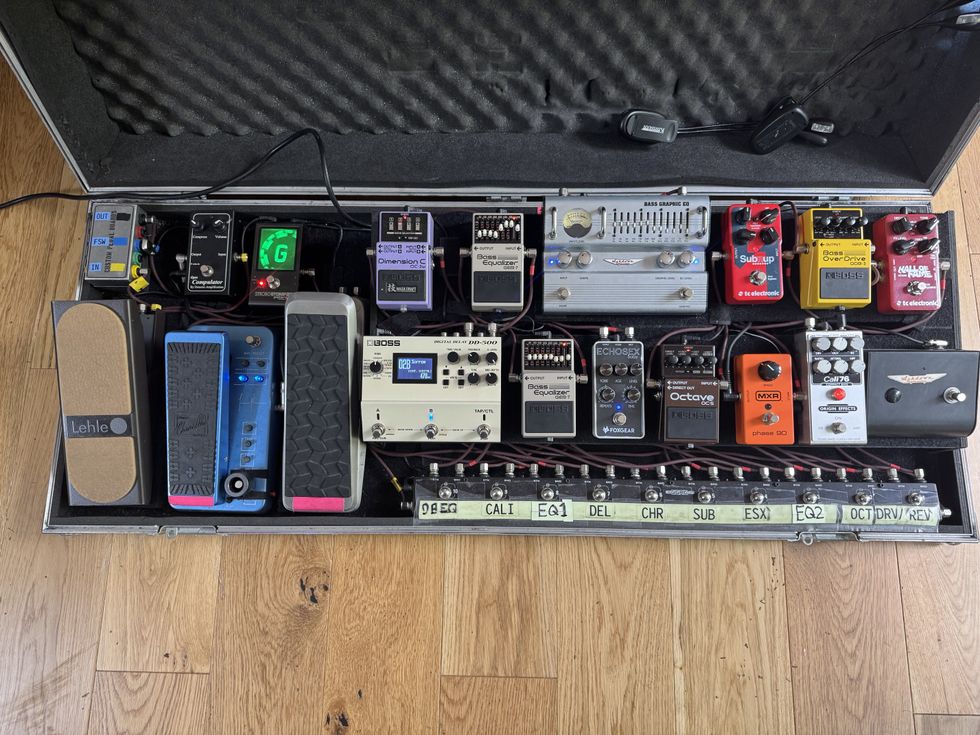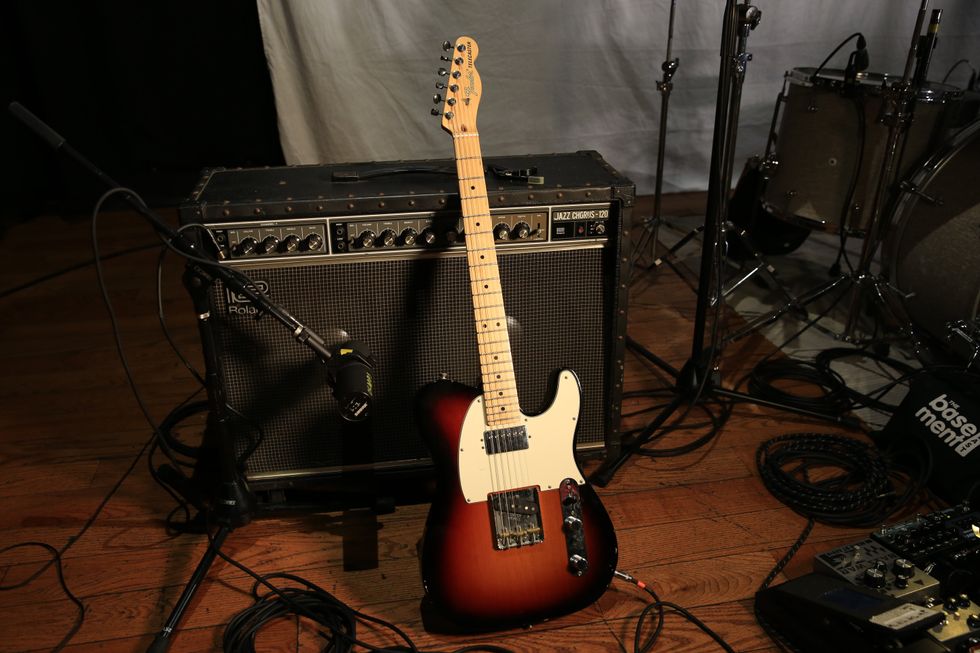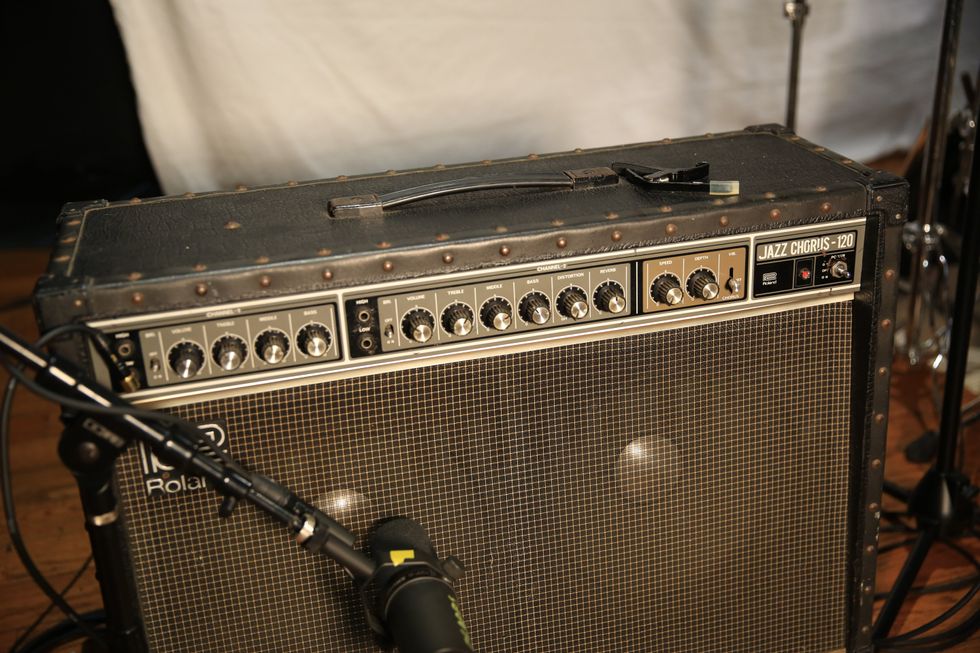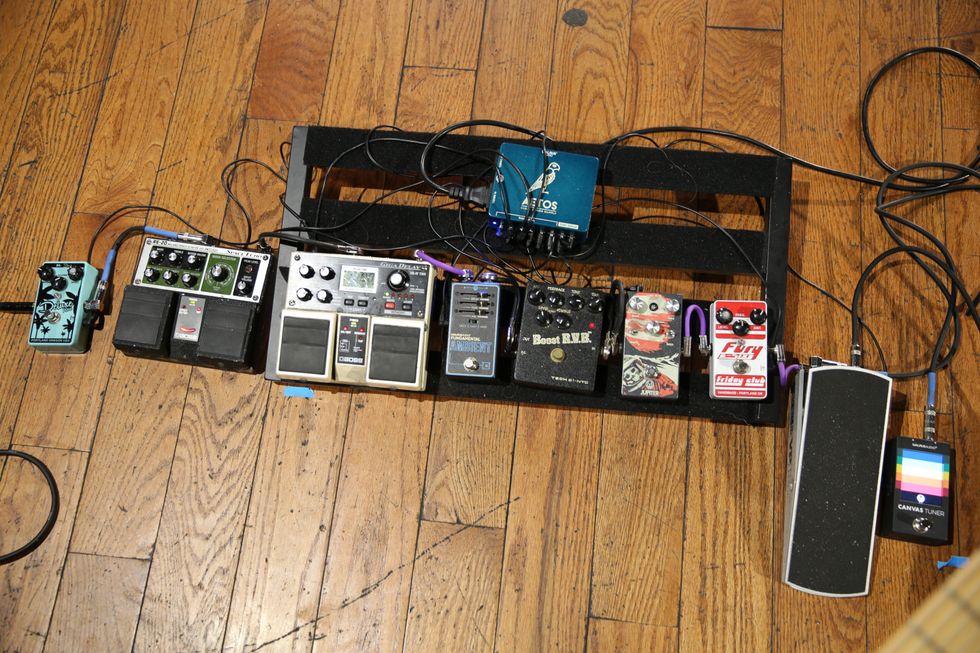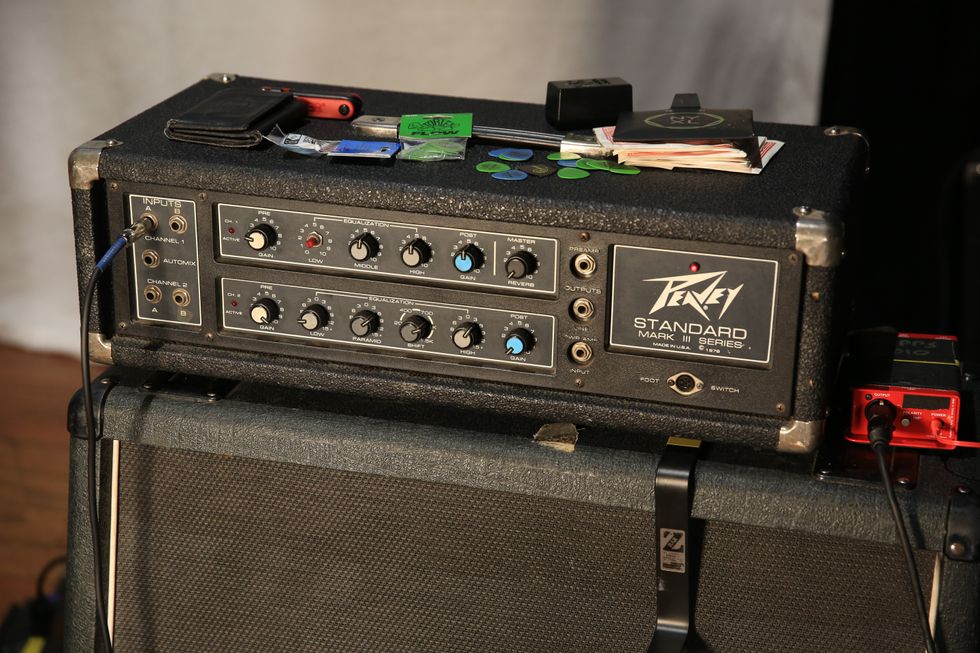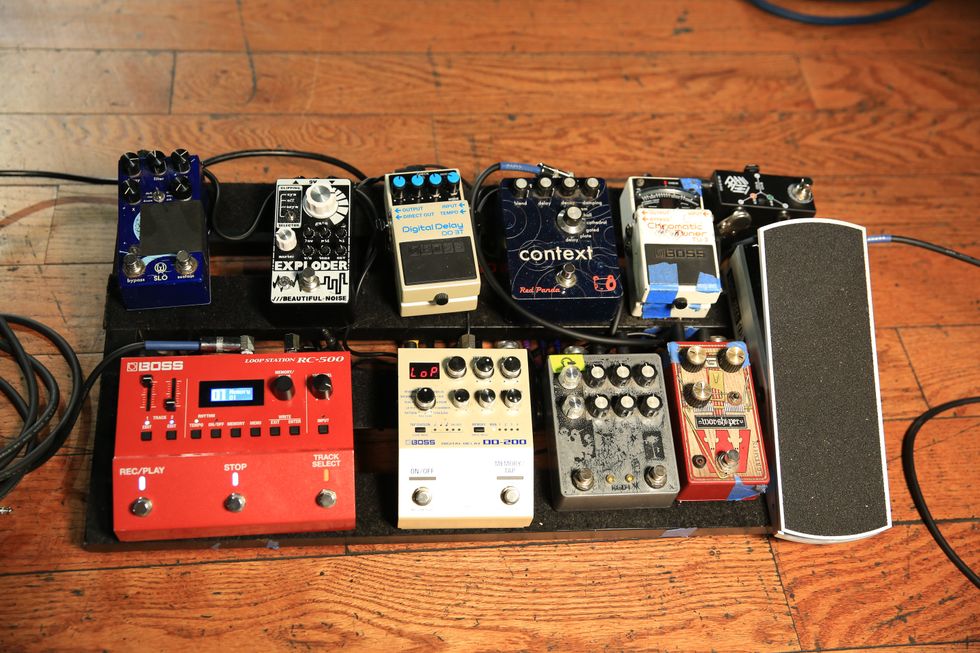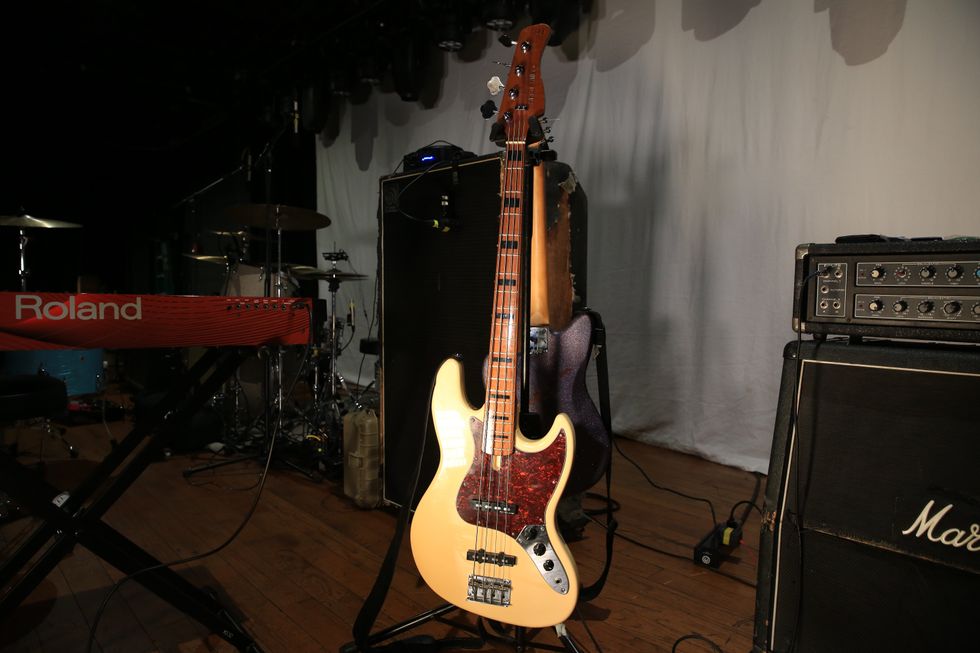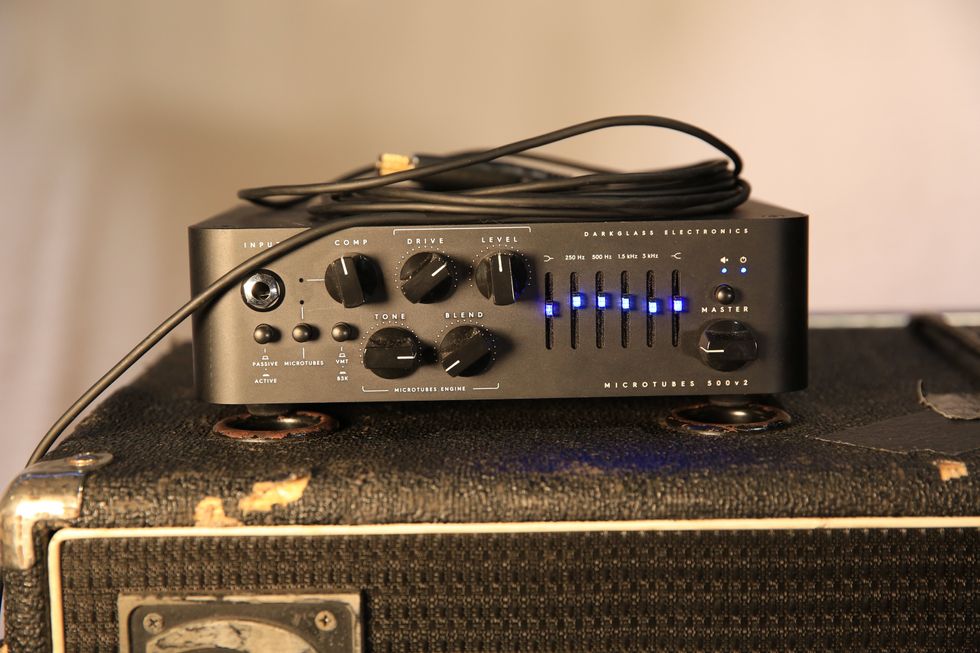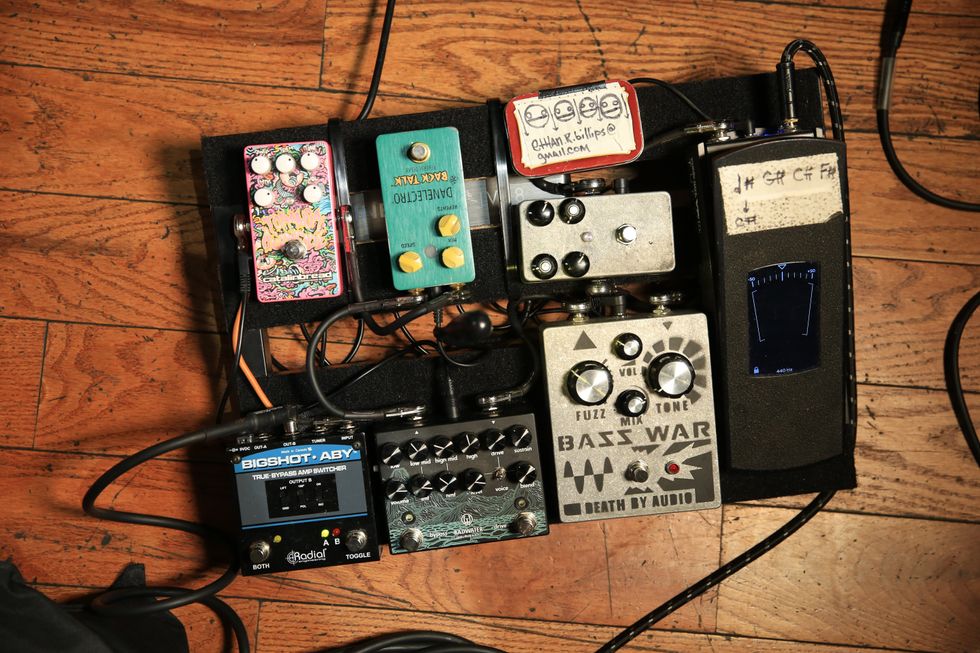Recorded with Fender P using a Focusrite Scarlett 2i4 interface into GarageBand.
Clip 1: KGB-800 Chorus preset (#28) engaged. Gain at 2 o’clock, bass at noon, mid at 10 o’clock, treble at 1 o’clock.
Clip 2: Frankensynth preset (#94) engaged. Gain at noon, bass at 2 o’clock, mid at noon, treble at 1 o’clock.
RatingsPros:Big menu of presets, effects, and models, a tuner, wi-fi and Bluetooth, and pre- and post-processing XLR outs. Cons: Easy to fall down the rabbit hole of effects and model experimentation and forget about the practicing part. No out for external speaker. Street: $349 Fender Rumble Studio 40 fender.com | Tones: Ease of Use: Build/Design: Value: |
The everything-but-the-kitchen-sink approach can often fall flat, whether you’re talking music gear or a do-it-all power tool that also makes bread and gives facials. Fender’s Rumble Studio 40 for bassists has a whole bunch of stuff onboard, but happily also gets a bunch of it right.
It’s a 40-watt combo with a 10" speaker and switchable horn that utilizes the company’s GT engine for a bounty of effects and models to explore. The amp is light, at 19 pounds. It has a clean interface with smooth spinning dials, and the overall construction looks and feels solid. While there is plenty going on inside, even the most tech-challenged player can manage a huge variety of bass sounds right out of the box. The tweakier player will enjoy the deep editing and programming available via the control panel or Fender’s free Tone app.
The Rumble Studio 40 can muster impressive volume for its size and weight. The amp is ideal for practice or a spot near a computer for tracking (thank you, USB audio port), but it could also tackle a small coffeehouse gig with ease. I especially enjoyed the clean tones from amp models like the ’59 Bassman and British Watts, but I also derived inspiration scrolling through all the presets and sampling the large menu of effects. Many sounds were fun and quite usable, albeit some sounded more processed than others. Overall, it’s certainly a well-connected practice tool for the modern player—beginner or not—and it’s tough to scoff at the price when you consider its bag of goods.
Test Gear: Fender Precision, Orange O Bass




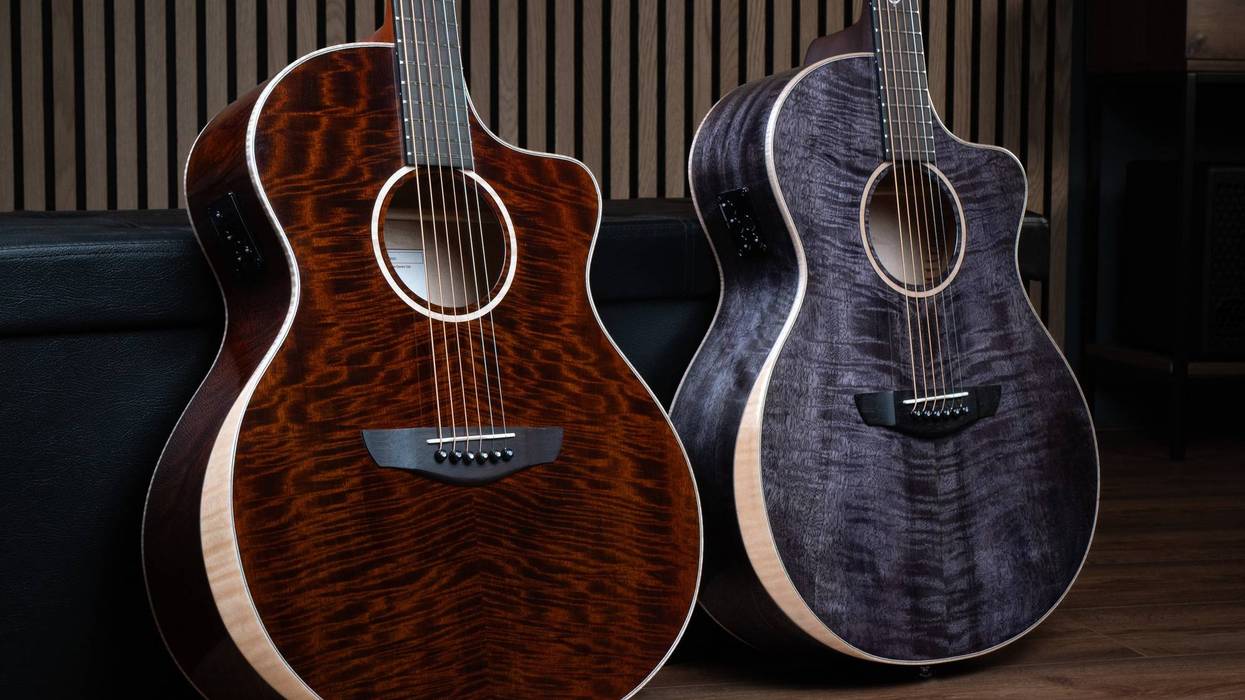
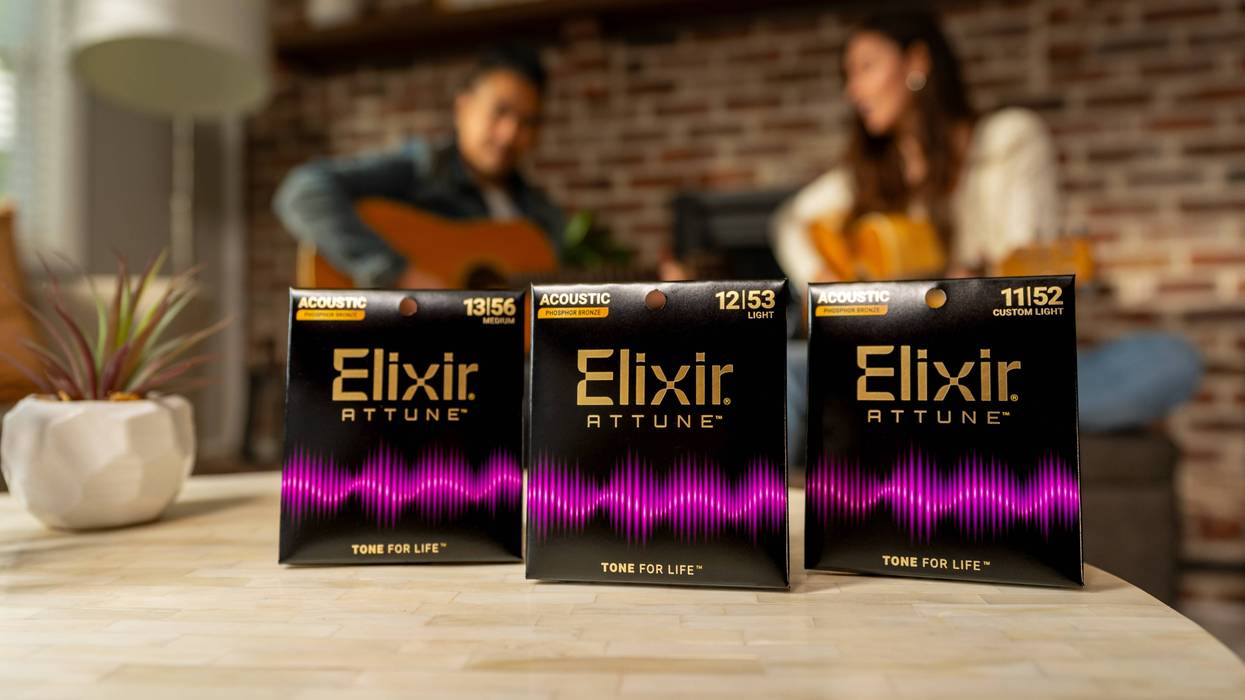
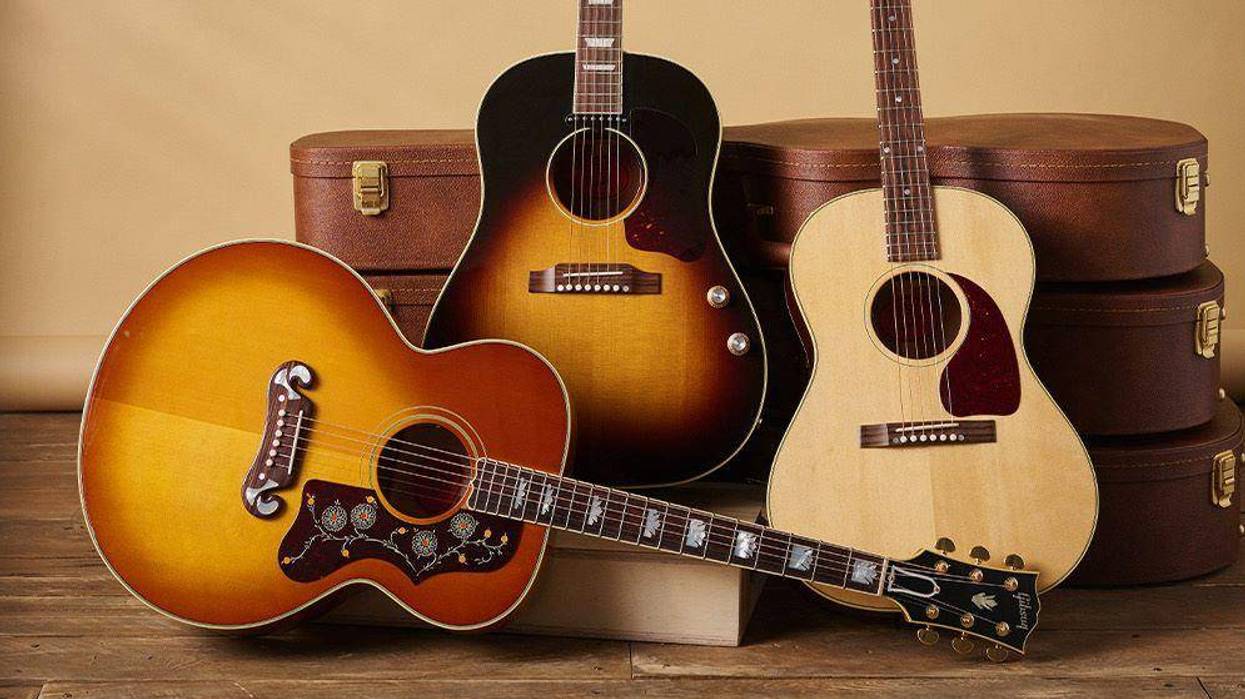

![Rig Rundown: AFI [2025]](https://www.premierguitar.com/media-library/youtube.jpg?id=62064741&width=1245&height=700&quality=70&coordinates=0%2C0%2C0%2C0)












 Shop Scott's Rig
Shop Scott's Rig
